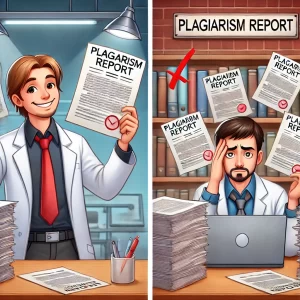Why Proper Citation Skills Are More Important Than Ever for Today’s Students
In the current digital era, students can easily access an immense wealth of information right at their fingertips. This creates remarkable opportunities for learning and research, but it also brings distinct challenges. Accessing information has become straightforward, and the pressure to achieve academic success has heightened the importance of addressing plagiarism and maintaining intellectual honesty. Proper citation has evolved beyond mere academic etiquette; it is now a crucial skill that students need to develop in order to uphold credibility, honor intellectual property, and ethically contribute to the body of knowledge.
Upholding Academic Integrity
Academic integrity serves as the cornerstone of every educational pursuit. Universities, colleges, and schools rely on trust: the understanding that students’ work demonstrates their knowledge, effort, and creativity. Accurate citation is fundamental to this principle. When students accurately credit sources, they show respect for the work of others and maintain honesty regarding the origins of their information, ideas, and inspiration. Lack of transparency undermines the credibility of academic work and jeopardizes the learning process. Building strong citation skills is an essential initial step in fostering integrity and respect for the scholarly process among students.
Avoiding Accidental Plagiarism
With the volume of information students process, it’s easy to forget where a particular idea or piece of information originated. This is especially true with online research, where students often sift through dozens of web pages, articles, and databases. The line between personal insights and borrowed ideas can blur unintentionally. Proper citation skills help students avoid accidental plagiarism, a common issue where students may unknowingly include ideas or phrases from other sources without giving credit. Learning to track sources diligently and cite them appropriately reduces the risk of accidental plagiarism and teaches students to handle information responsibly.
Building Credibility and Academic Reputation
Accurate citation of sources by students boosts the credibility of their work. Citations enable readers, such as teachers and peers, to confirm the information and delve deeper into the sources. Accurate citations demonstrate that a student has conducted comprehensive research, referenced credible sources, and engaged thoughtfully with the content. This enhances the student’s reputation as a meticulous and dedicated researcher. As students advance in their academic journeys, this practice can set them apart in their discipline, fostering a positive reputation that may enhance their professional futures as well.
Encouraging Intellectual Curiosity and Lifelong Learning
One of the indirect benefits of citation is that it fosters a sense of intellectual curiosity. Proper citation practices encourage students to engage thoughtfully with sources, examine authors’ perspectives, and connect different viewpoints. Citation extends beyond merely listing sources; it serves as a means to engage more deeply with knowledge. When students understand that every idea originates from a source and that each source offers a distinct perspective, they begin to value diverse thoughts and cultivate a practice of ongoing learning and exploration.
Understanding Intellectual Property and Respecting Others’ Work
In today’s world, where content is readily copied and shared, grasping intellectual property rights is essential. Referencing sources acknowledges the effort and ingenuity of others. Intellectual property laws safeguard original ideas, research results, and creative works. By citing sources, students demonstrate respect for these rights while steering clear of legal and ethical challenges. This skill holds significant importance for students transitioning into careers where intellectual property plays a crucial role, including fields like publishing, media, and academia.
Preparing for the Professional World
Effective citation skills are essential not only in academia but also in the professional realm. Accurate attribution of information is crucial across journalism, science, business, and all other fields for establishing trust and credibility. In various professions, incorrect citations or unverified information can lead to significant repercussions, including legal issues and harm to reputation. Employers greatly appreciate individuals who exhibit ethical practices, diligence, and a keen attention to detail. By mastering proper citation from the start, students develop these qualities, providing them with an edge as they transition into the workforce.
Navigating a World of Rapidly Expanding Information
The internet is expanding quickly, creating a vast and dynamic information landscape. Understanding proper citation enables students to effectively navigate this intricate landscape by prompting them to assess the credibility of sources. This skill is essential in today’s world of misinformation, where it is important to differentiate between credible sources and unreliable ones, even though it can be challenging. Proper citation motivates students to find credible, authoritative sources, enhancing critical thinking and information literacy.
Enhancing Analytical and Organizational Skills
Accurate citation involves meticulous tracking, organization, and documentation of sources—abilities that are advantageous outside of academia. These habits enhance analytical skills, enabling students to evaluate the relevance and credibility of each source. Proper citation improves organizational skills, helping students keep clear records of their research. This can simplify their workflow and make writing and referencing more straightforward. The capacity to organize and handle information is a valuable skill that can aid students in various professional environments.
Conclusion
In today’s world, where information is plentiful and readily available, developing strong citation skills is crucial for students. Citation not only helps in avoiding plagiarism but also promotes academic integrity, enhances credibility, and equips students for ethical practices in their professional lives. It fosters intellectual curiosity, respect for intellectual property, and critical thinking skills, which are essential for navigating a society rich in information. Developing strong citation habits allows students to maintain academic standards while establishing a foundation for lifelong learning and ethical behavior in their future careers.
